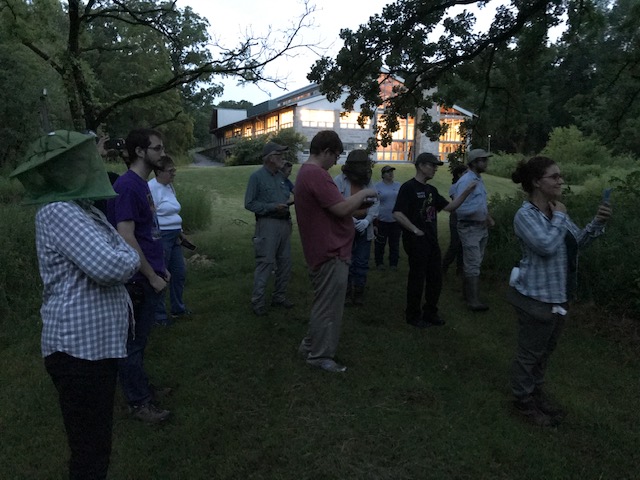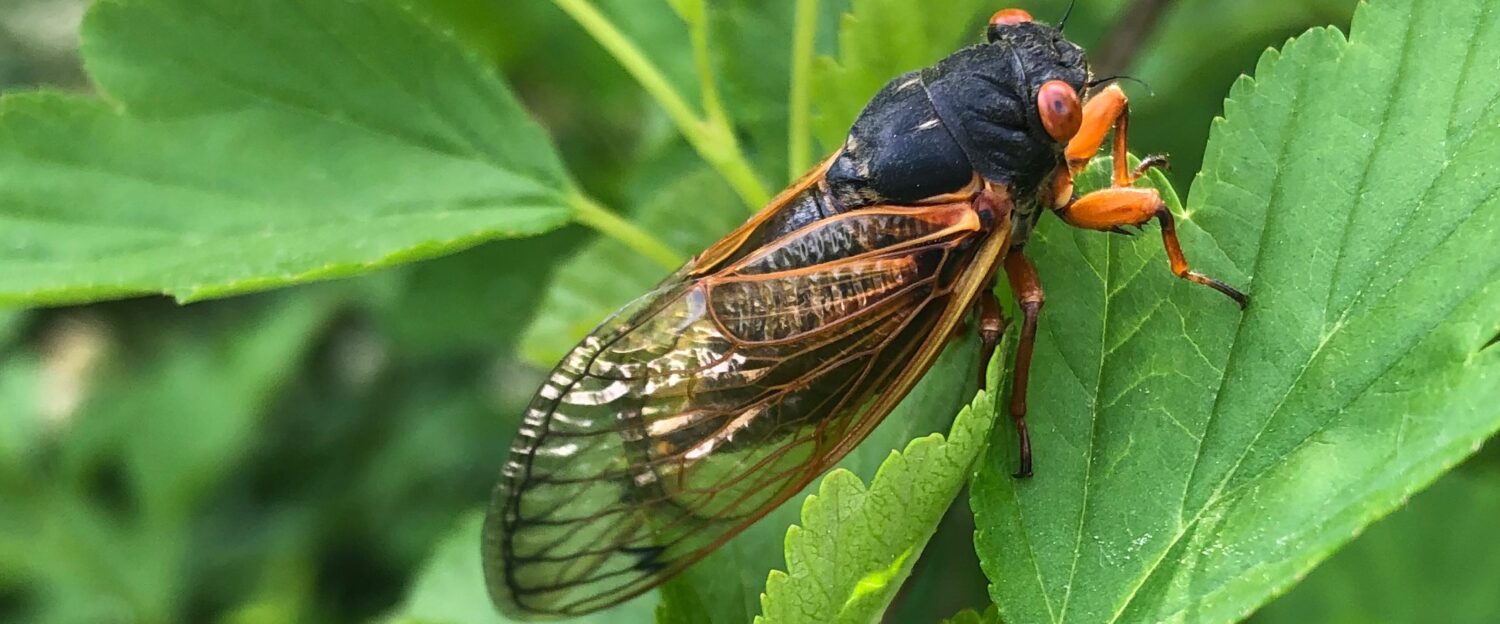2024 is the big year – Periodical cicadas are coming to our area this summer!
Participate in the Magicicada Soundmap Project – click here!
What are singing insects?
The four major groups of insects that sing are the Katydids, Cicadas, Grasshoppers, and Crickets. All of these insects are herbivores that live and feed on plants. In order to find a mate, these bugs will make sounds by rubbing their wings or legs together, causing noisy vibrations that can be heard all summer long in lawns, meadows, forests, thickets, and marshes across the Midwest. Many can even be heard in the parks, streets and alleyways of your city!
Singing insects are special in that they can be uniquely identified by their sounds, whereas other species that do not sing, such as dragonflies, have to be identified by sight. We can learn a lot about species diversity just by listening on a warm summer night.
What is a monitoring program?
Citizen science happens when everyday people participate in research, collecting data towards a common, shared goal. The goal of the Singing Insects Monitoring program is to create a sound map for insect populations in the Chicago Wilderness region. Singing insect monitors collect sound data, make field recordings, and share information about species heard in the research area.
You do not need to be an expert to participate. You can always add observations yourself to the 2024 season of cicada observations or the more general project using the iNaturalist app or website.
How can I get involved?
2024 will be the last year of outreach programming. You can still participate in the iNaturalist project or follow events posted at the Midwest Society for Acoustic Ecology. Follow Carl Strang on his blog for updates on his work. https://natureinquiries.wordpress.com/
Who is involved with this project?
This webpage is inspired by the work of Carl Strang, a naturalist from DuPage County, who, after years of careful research and listening in the field, compiles an annual guide to all the singing insects in the Chicago region. He had already worked on the framework for a citizen science program, and this project began in support of it. Negin Almassi runs trainings through the Forest Preserves of Cook County. Erica Lemon hosts workshops at Kane County forest preserves, and Eric Leonardson of the Midwest Society of Acoustic Ecology helps lead listening walks and field recording workshops in support of this effort.
If you are interested in getting a copy of Carl’s guide, he can be contacted at wildlifer@aol.com – check out his website, Nature Inquiries, for updates on his work. This project has also received support from the Forest Preserves of Cook County, the Midwest Society for Acoustic Ecology and the Chicago Park District’s Natural Areas program.

